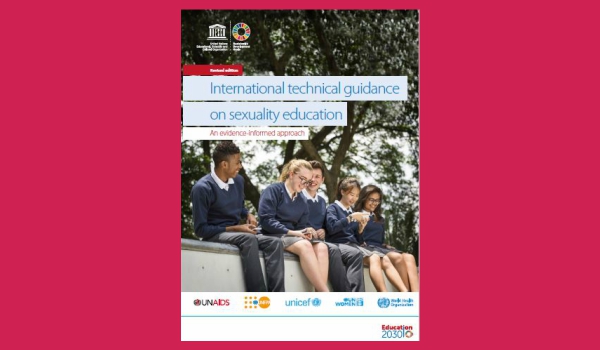
More and more young people have joined together to call for their right to sexuality education. They have been joined by communities, parents, faith leaders and stakeholders in the education sector who increasingly champion sexuality education as an essential component of a good quality education that is comprehensive and life skills-based; and which supports young people to develop the knowledge, skills, ethical values and attitudes they need to make conscious, healthy and respectful choices about relationships, sex and reproduction. Yet too many young people still make the transition from childhood to adulthood receiving inaccurate, incomplete or judgement-laden information affecting their physical, social and emotional development. This inadequate preparation not only exacerbates the vulnerability of children and youth to exploitation and other harmful outcomes, but it also represents the failure of society’s duty bearers to fulfil their obligations to an entire generation.
This revised and fully updated edition benefits from a new review of the current evidence, and reaffirms the position of sexuality education within a framework of human rights and gender equality. It promotes structured learning about sex and relationships in a manner that is positive, affirming, and centred on
the best interest of the young person. By outlining the essential components of effective sexuality education programmes, it enables national authorities to design comprehensive curricula that will have a positive impact on young people’s health and well-being. Like the original Guidance, this revised version is voluntary, based on the latest scientific evidence, and designed to support countries to implement effective sexuality education programmes adapted to their contexts.
Ipas reports that the guidance:
> Lists unsafe abortion as one of the key issues affecting young people’s health and well-being;
> Points to evidence that omitting important topics like abortion in sexuality education will lessen its effectiveness;
> Calls for young people to receive information on the abortion laws and policies that affect them, the serious health risks posed by unsafe abortion, and the importance of advocating for laws and policies that support human rights;
> Recommends that curricula provide scientifically accurate and complete information, including on topics that are often considered sensitive or stigmatized, such as contraception, HIV/AIDs, sexual orientation, gender identity and abortion.
From: Foreword, by Audrey Azoulay, Director-General, UNESCO, in: GUIDANCE: UNESCO, 2nd revised edition, 2018. ISBN 978-92-3-100259-5



